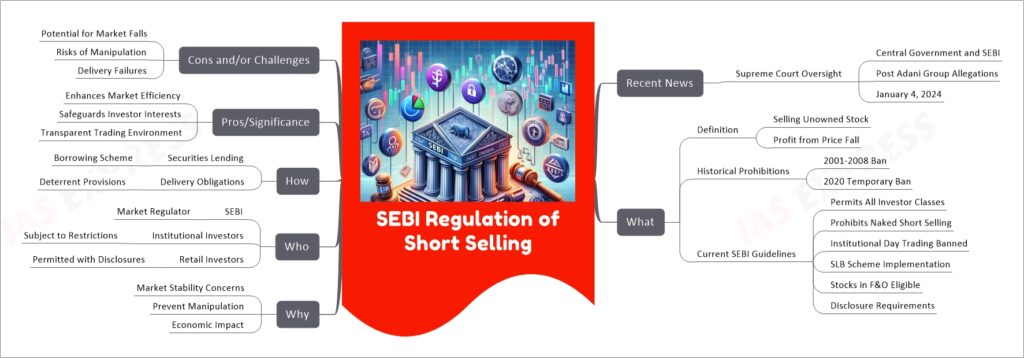SEBI Regulation of Short Selling

The Indian Government, through the Securities and Exchange Board of India (SEBI), has implemented a comprehensive framework to regulate short selling in the securities market. Short selling involves selling a stock that the seller doesn’t own at the time of the trade, aiming to profit from a price drop. SEBI’s recent guidelines permit all classes of investors to engage in short selling, strictly prohibiting naked short selling. Institutional investors face restrictions like the ban on day trading and are required to declare their short sales. The Securities Lending and Borrowing (SLB) scheme supports this practice. These measures aim to enhance market efficiency, protect investor interests, and maintain a transparent and secure trading environment.
If you like this post, please share your feedback in the comments section below so that we will upload more posts like this.

